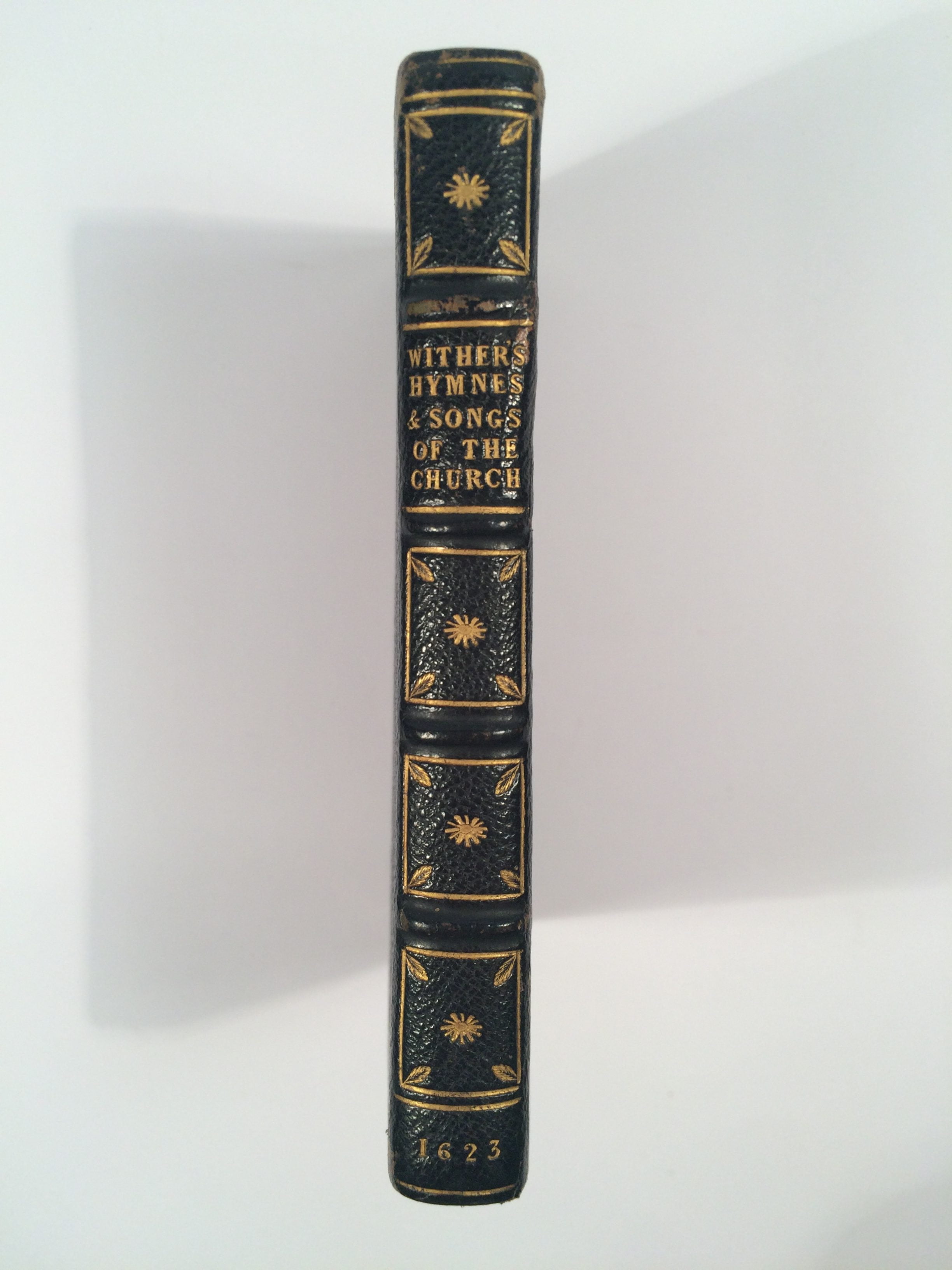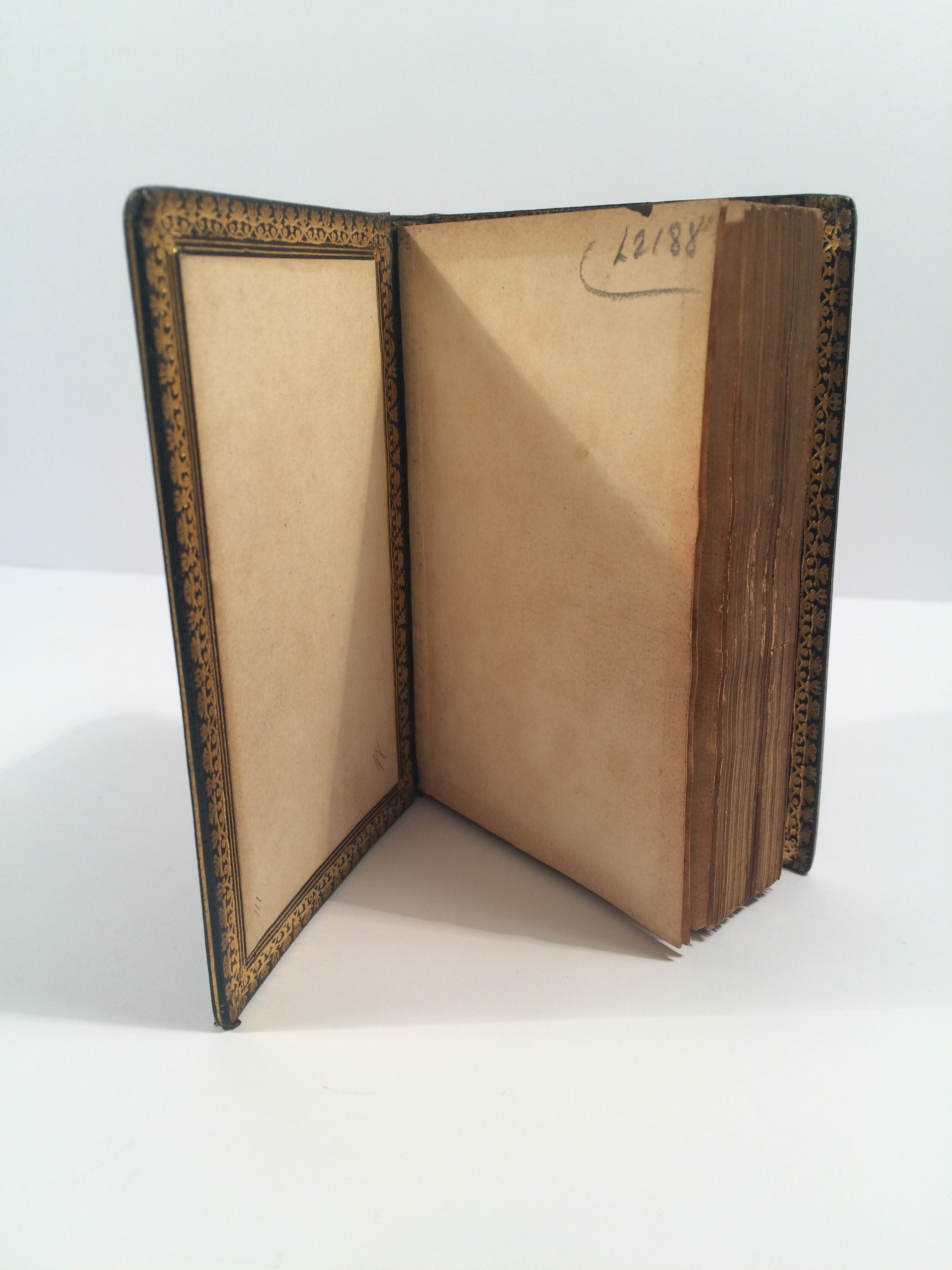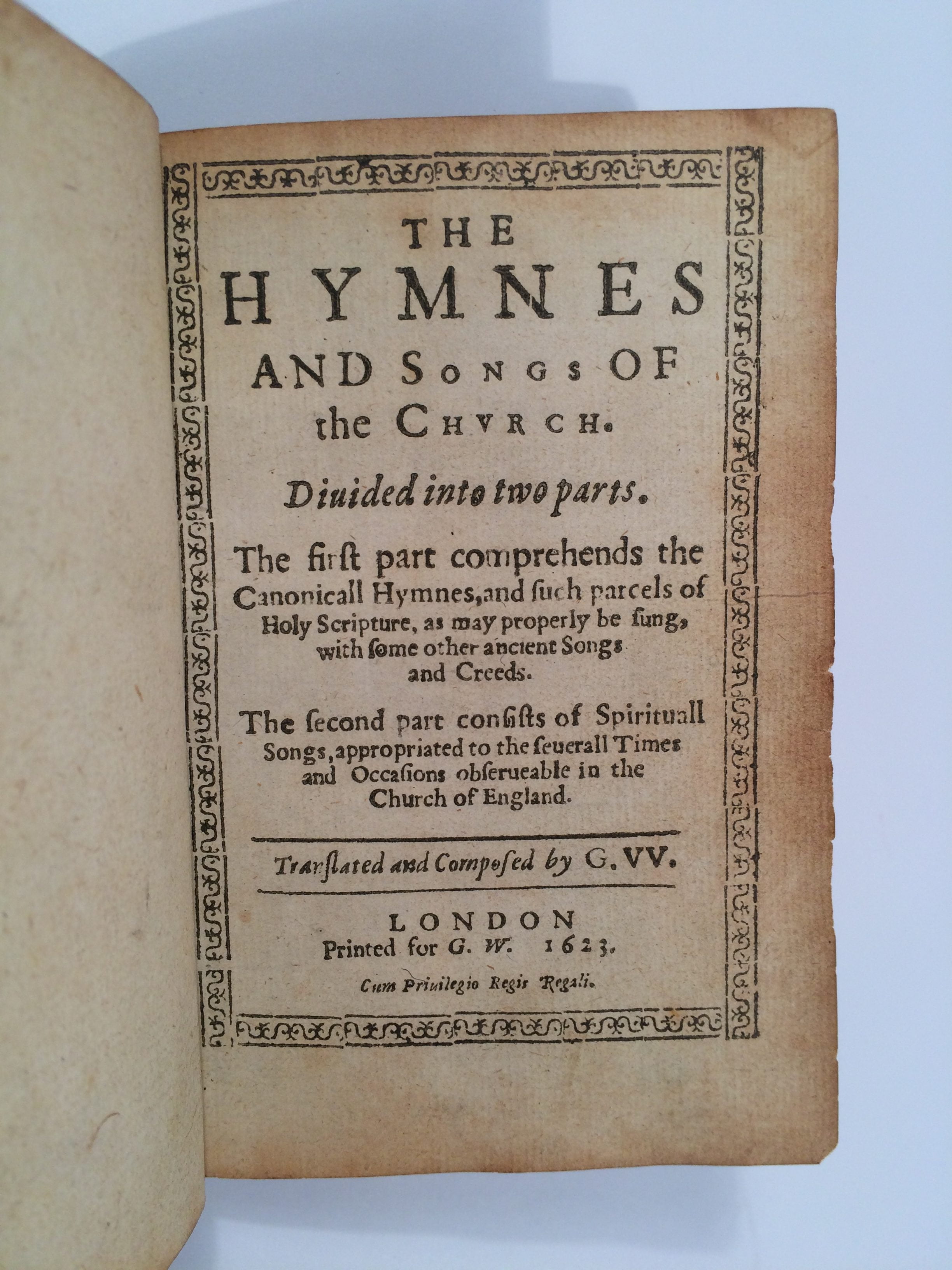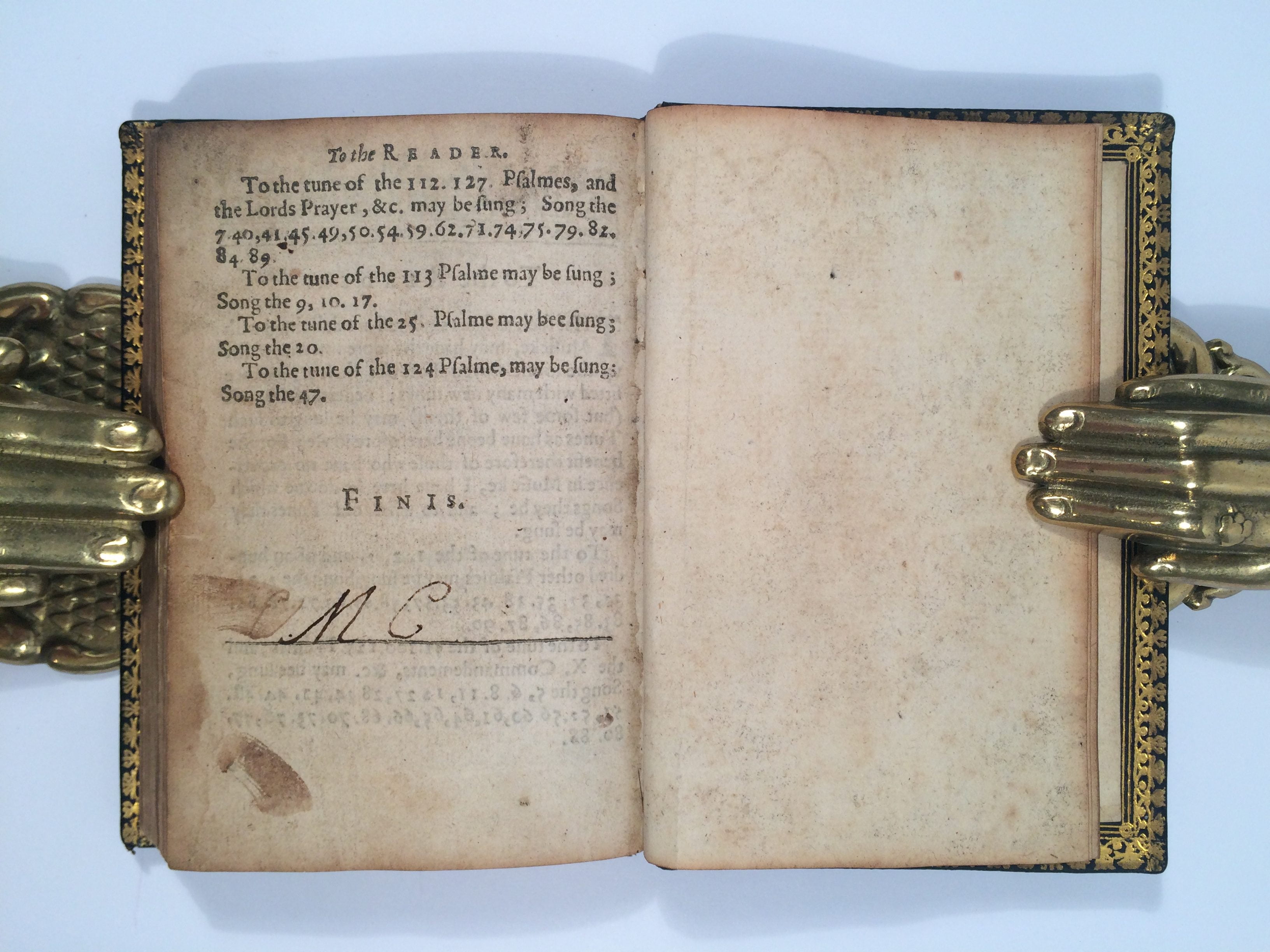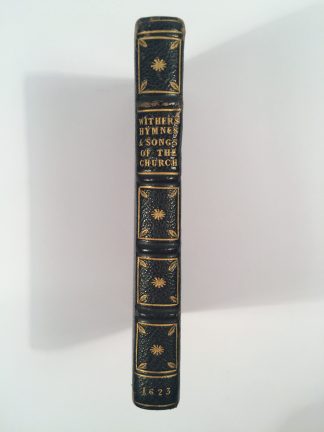WITHER George.
The hymnes and songs of the Church. Diuided into two parts. The first part comprehends the canonicall hymnes, and such parcels of Holy Scripture, as may properly be sung, with some other ancient songs and creeds. The second part consists of spirituall songs, appropriated to the seuerall times and occasions obserueable in the Church of England
London, Printed [by John Bill] for G[eorge] W[ither], 1623£6,500.00
FIRST EDITION. 16mo. pp. [ii], 46, 45-218, [ii]. A-O⁸. Roman letter, some Italic. Title within woodcut type border, woodcut musical notation, small floriated initials, woodcut and typographical ornaments, ‘M.C.’ in slightly later hand on verso of last. Light age yellowing, minor marks and spots in places, small closed tears to 3 leaves, H1, K8 and M6, slight adhesion damage to N1-2. A very good copy in nineteenth century black morocco gilt, covers double gilt ruled to a panel design, fleurons to inner corners, spine with raised bands gilt ruled in compartments, fleurons gilt to centers, edges gilt ruled, inner dentelles gilt all edges gilt, small tear to upper joint.
Rare first edition of the first English hymn book. Composed by the poet George Wither with the music of Orlando Gibbons it is the first hymn book for Church of England congregations and was dedicated to James I. Wither’s hymnbook is the first book of congregational song that focuses exclusively on hymnody rather than psalmody. George Wither was an English poet, pamphleteer, and satirist. His ‘Hymnes and Songs of the Church’ (1622–1623) were aimed to counter exclusive psalmody, represented by the Sternhold and Hopkins Psalter. Orlando Gibbons provided the music for seventeen of them which represents almost the entire body of his sacred music published in his lifetime. They were issued under a patent of King James I ordaining that they should be bound up with every copy of the authorized metrical psalms offered for sale. This patent was opposed, as inconsistent with their privilege to print the singing-psalms, by the Stationers Company, to Wither’s great mortification and loss, and a second similar patent was finally disallowed by the House of Lords. Wither defended himself in ‘The Schollers Purgatory’ (1624). In this document, a 140-page diatribe against the Stationers Company for their refusal to print his work, Wither blames them for his financial ruin and hardship.
“Before the restoration, non-scriptural hymns were regarded by most with suspicion as being ‘relics of Popery’. However, the origins of English hymnology are to be found in the early seventeenth century. It was during this period that the first hymn book appeared for Church of England congregations. George Wither’s ‘The hymnes and songs of the Church’ was quite an ambitious endeavour. The hymns and songs were composed by Wither while Orlando Gibbons provided the tunes, but the project was doomed from the start. Wither had fallen foul of the Stationers’ Company, who sought to maintain their monopoly on the printed word and, despite repeated attempts to break out of their imposed strait-jacket, Wither was unable to popularize his work. .. Wither also provided hymns for seasons and feasts including a translation of the Veni Creator which invokes and addresses the holy spirit. ‘Song 59’ was intended for Trinity Sunday and the hymn stressed the limitations of reason in the face of Mystery. .. Whatever the merits of Wither’s writings as poetry, as hymns they are quite valiant attempts to render the complexities of the doctrine of the Trinity into popular genre. His verse never achieves the depth of feeling or flourishes of rhetoric that we will find in Donne, but it does reveal a faith that was thoroughly trinitarian in flavour. Whither was obviously ‘at home’ with the doctrine of the Trinity as much as Donne was, and in a way in which the majority of later divines were not.” Philip Dixon.’ Nice and Hot Disputes’
The work appeared in four forms in 1623; 16mo, 8vo, quarto and folio; this 16 mo. edition is the first.
STC 25908. ESTC S102343In stock


